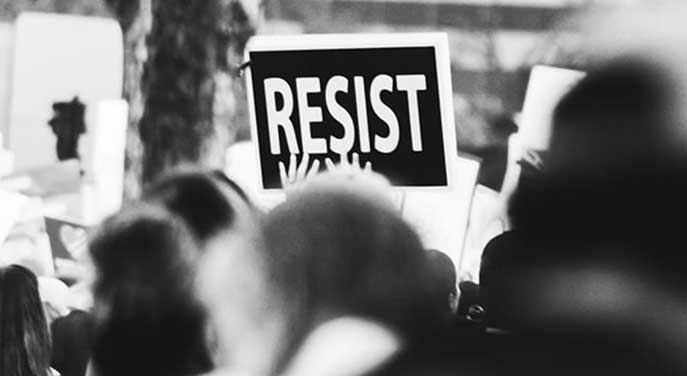 “The United States of America will be designating ANTIFA as a Terrorist Organization.” – @realDonaldTrump, May 31, 2020
“The United States of America will be designating ANTIFA as a Terrorist Organization.” – @realDonaldTrump, May 31, 2020
With that tweet, U.S. President Donald Trump has started the process of changing the narrative about radical left-wing individuals, parties and groups in his country – and around the world.
How he’s going to actually do it with Antifa remains to be seen.
Antifa is short form for anti-fascist. It has an indirect historical link to the defunct German organization Antifaschistische Aktion, which was linked to that country’s Communist Party.
Followers are often on the extreme/radical left, including communists, Marxists, anarchists and socialists. They tend to reject mainstream concepts such as capitalism, free markets, private enterprise and even democratic government.
Those who classify themselves as Antifa followers or supporters have claimed to be non-violent. While it’s certainly fair to say some of them follow this principle, many don’t.
As CNN’s Sara Ganim and Chris Welch wrote on May 3, 2019, “their methods are often violent. Antifa leaders admit they’re willing to physically attack anyone who employs violence against them or who condones racism – as long as force is used in the name of eradicating hatred.”
Trump and others have suggested Antifa is largely behind the violence, destruction and looting that has plagued more than 100 U.S. cities for a week. (Protests have also spread to Canada and parts of Europe, and will likely travel even further.)
If you look at historical protests of a similar nature, including during G7 conferences and World Trade Organization meetings, the personal and ideological leanings of most participants usually isn’t difficult to figure out.
And while a mishmash of other individuals/groups/beliefs/biases in these mob scenes can develop over time, they rarely tilt the pendulum in a different direction.
The strategy of targeting these left-wing radicals is therefore long overdue.
Alas, there are several immediate problems with Trump’s strategy.
First, Antifa is a political movement that cobbles together mostly like-minded souls. There’s no designated leader and there’s no understood hierarchy of power. In other words, there’s no specific political party or group that one can use a brush to paint the words “terrorist organization” on.
Second, the U.S. doesn’t have a law on the books dealing with domestic terrorism. Unless this changes, the president’s declaration can’t be tied to a legal precedent – which renders it meaningless right out of the gates.
Third, there are mainstream left-wingers, including social democrats and liberals, who side with Antifa’s positions but don’t support or participate in the more extreme elements. Poor personal choices aside, they don’t deserve to be labelled as terrorists.
So how can you designate a political movement as a terrorist organization?
In theory, you can’t. But in practice, this designation can be of some real political benefit.
The Trump White House could suggest Antifa has acted like terrorists in destroying property and ruining lives during these protests, for instance. Or that they’ve participated in the repeated violence and looting of small businesses, large stores and Atlanta’s College Football Hall of Fame. Or that they’ve been involved in throwing Molotov cocktails and starting fires in cars, businesses and historical landmarks like Washington’s St. John’s Episcopal Church.
The president and his senior advisers could then make a succinct argument that Antifa may not physically be a person or group, but rather a radicalized left-wing political movement that’s attempted to eradicate America’s cherished liberties and freedoms during these protests.
In that way, the designation “terrorist organization” fits Antifa’s actions to its very core – and these violent protesters need to be brought to justice.
Trump’s supporters would probably be pleased that he took action. His critics would probably lose their minds, either furious he went this route or they’d continue to dispute Antifa’s role during these protests.
And that’s the exact reaction he would be privately hoping for.
Michael Taube, a Troy Media syndicated columnist and Washington Times contributor, was a speechwriter for former prime minister Stephen Harper. He holds a master’s degree in comparative politics from the London School of Economics.
The views, opinions and positions expressed by columnists and contributors are the author’s alone. They do not inherently or expressly reflect the views, opinions and/or positions of our publication.

